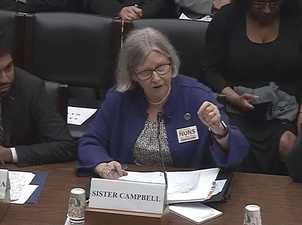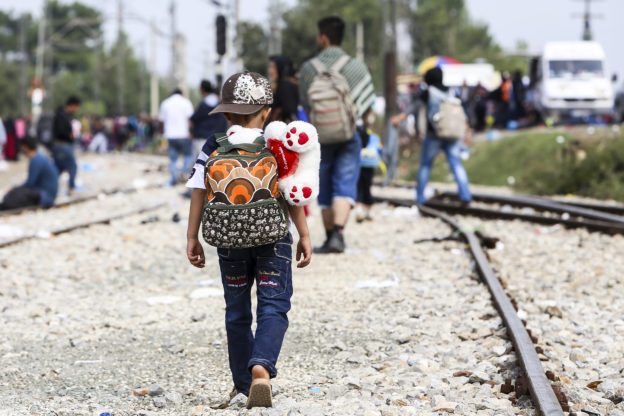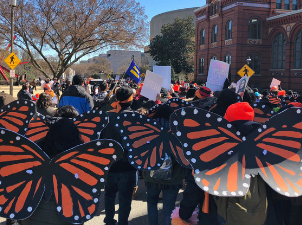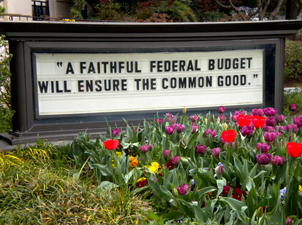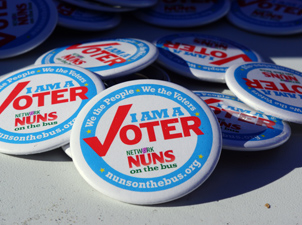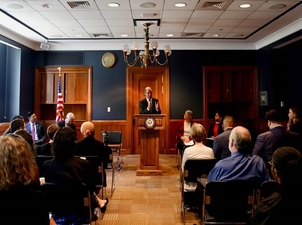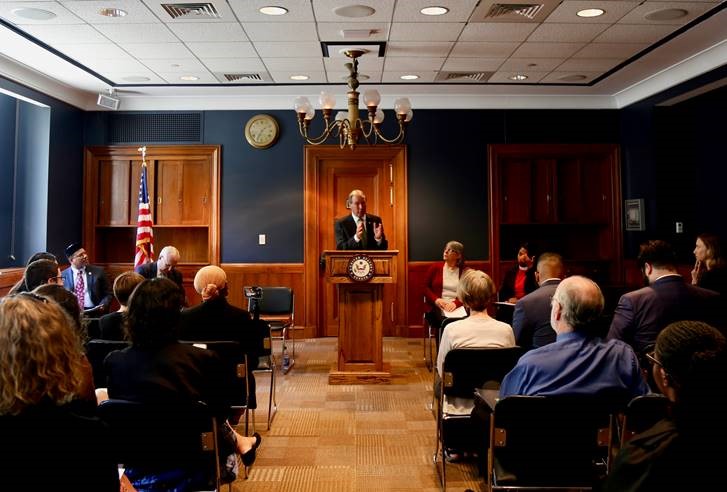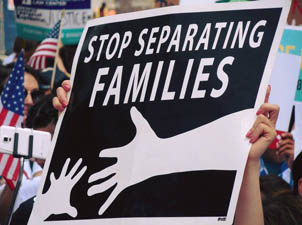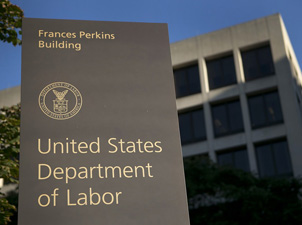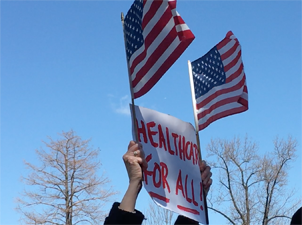
Sister Simone’s Testimony on Child Poverty
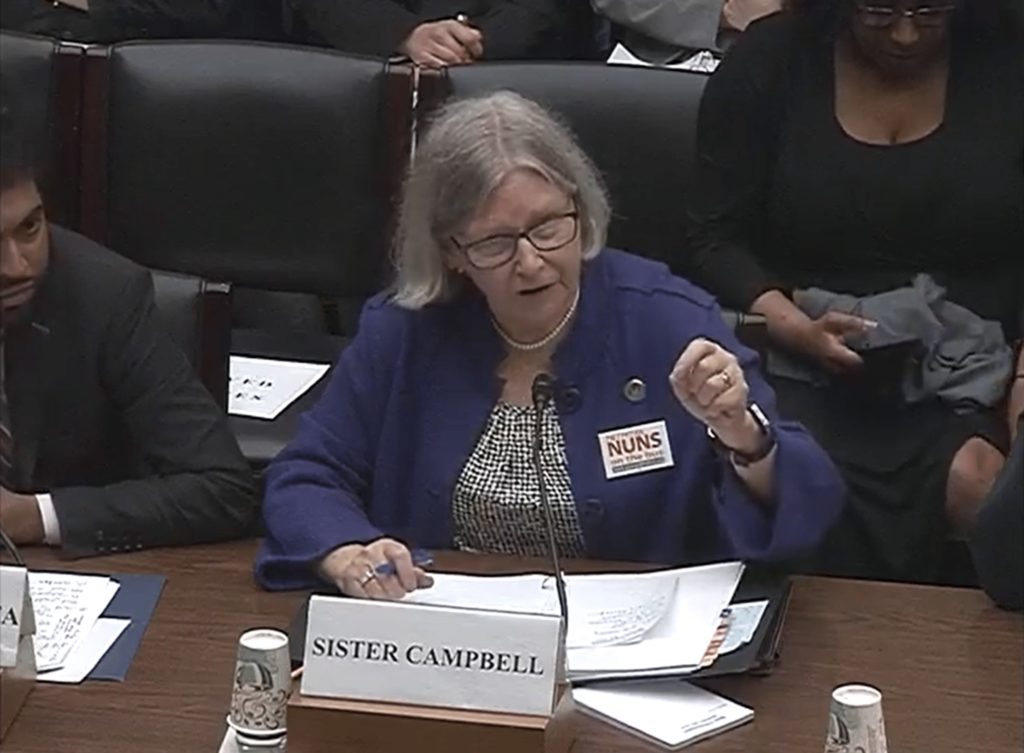 On February 5, 2020, Sister Simone testified in front of the House Oversight Committee Subcommittee on Government Operations about the Trump administration’s harmful proposal to change the poverty line calculation. Read Sister Simone’s written testimony below, and watch the recorded hearing at networklobby.org/ogrtestimonystream.
On February 5, 2020, Sister Simone testified in front of the House Oversight Committee Subcommittee on Government Operations about the Trump administration’s harmful proposal to change the poverty line calculation. Read Sister Simone’s written testimony below, and watch the recorded hearing at networklobby.org/ogrtestimonystream.
This new rule will in all likelihood lead to a poverty measure that further underestimates the material hardship experienced in the U.S., thus exacerbating what is already a dire situation for our children. It is expensive to be poor and new studies show that it is costing more every year. Various factors contribute to the dynamic, but inflation has a lot to do with it. Rich and poor households experience inflation differently. Research indicates that low-income households experience higher rates of inflation than those with middle or high-incomes. Inflation inequality refers to this heavier burden of inflation on low-income families due to their lack of options to “shop around” and substitute lower-priced goods. Low-income households often lack access to a diverse set of retailers due to neighborhood conditions, barriers to transportation, or lack of access to the internet. This is exactly what people have told us repeatedly in our travels.
Therefore, the current measure of inflation already tends to under-estimates the cost burdens of being poor. If the OMB adopts the Chained CPI it will exacerbate this invisible squeeze on people living in poverty—and that exacerbation will be compounded over time. Moreover, the statistics generated by this adjusted measure would effectively mask the reality of U.S. poverty, thus increasing the threshold for accessing needed supports.
The Administration has glossed over the fact that these proposed changes are predicted to preclude millions of struggling families from receiving crucial social safety net benefits. The U.S. Department of Health and Human Services (HHS) poverty guidelines are based on the OPM. Therefore, changing the measure would affect how HHS determines eligibility and benefits for a broad array of crucial federal social safety net programs. Moreover, children are more likely than any other age group to participate in these means-tested programs. Below are just a few of those key programs proven to benefit children’s health, education and food security and to lift millions of children out of poverty each year. The change to the applied inflation measure would have very real impacts on how many children can access these programs.
- The Supplemental Nutrition Assistance Program (SNAP) and the Special Program for Women, Infants and Children (WIC)
SNAP is the first line of defense against child hunger and food insecurity, a persistent problem for 17 percent of children in the United States. It is estimated that 200,000 participants would lose eligibility for SNAP as a result of this rule change.
WIC is an especially important program for ensuring children’s health and wellbeing by supporting pregnant and postpartum women, infants and young children who are at risk of going hungry. The program serves nearly half of all infants born in the U.S. and targets some of the most vulnerable women and children in the country. More than three quarters of WIC’s 7.6 million recipients are children under the age of 5. An estimate 40,000 children and infants could lose access in 10 years under this rule change.
- Medicaid and Children’s Health Insurance Program (CHIP)
Together, these programs provide crucial healthcare to more than one in three children in the United States. Adjusting the inflation measure as proposed could reduce access for 300,000 children in a decade.
- Community Health Centers (CHC’s)
CHC’s provide accessible, lower-cost primary care to roughly 28 million people across the country, nearly a third of whom are children. Applying the proposed changes could reduce the number of patients eligible for service.







